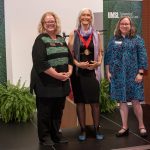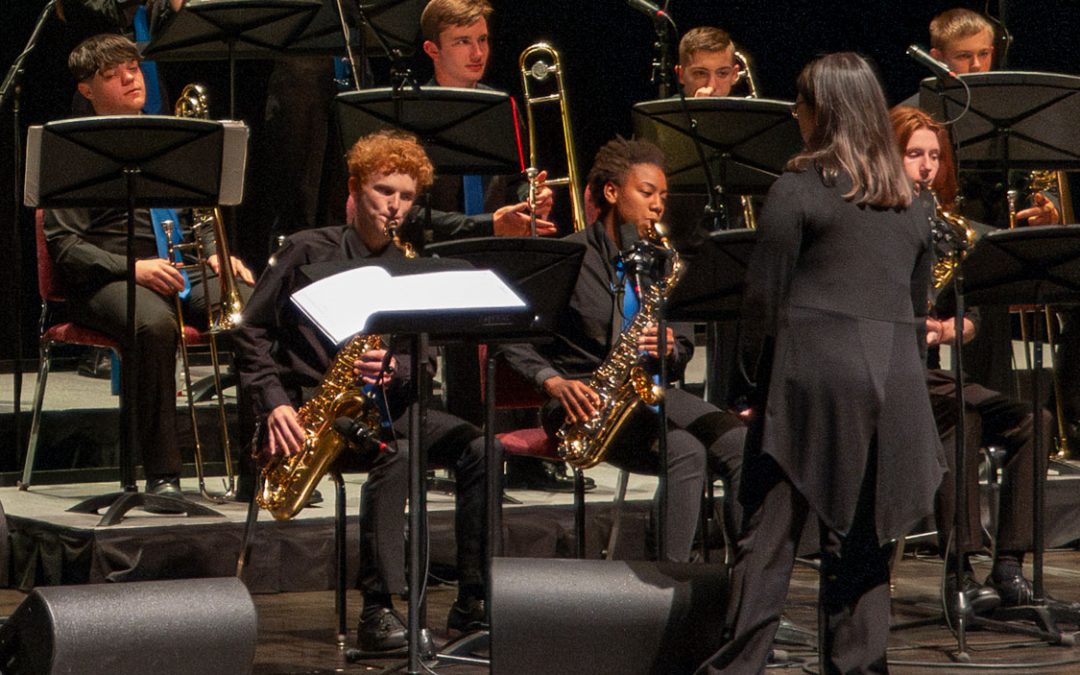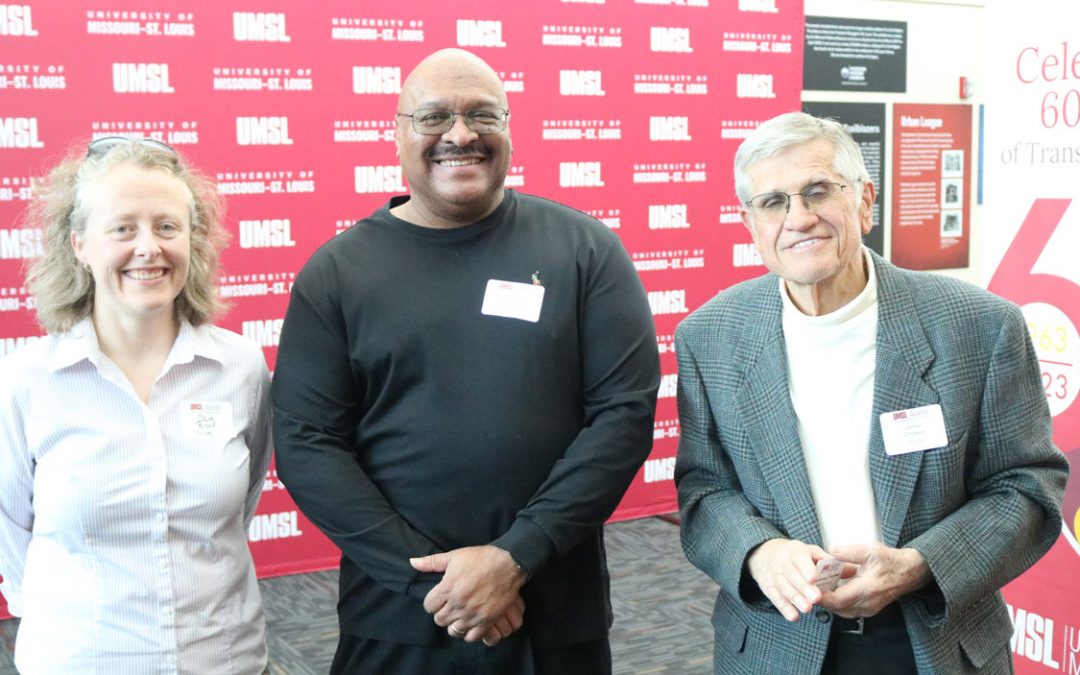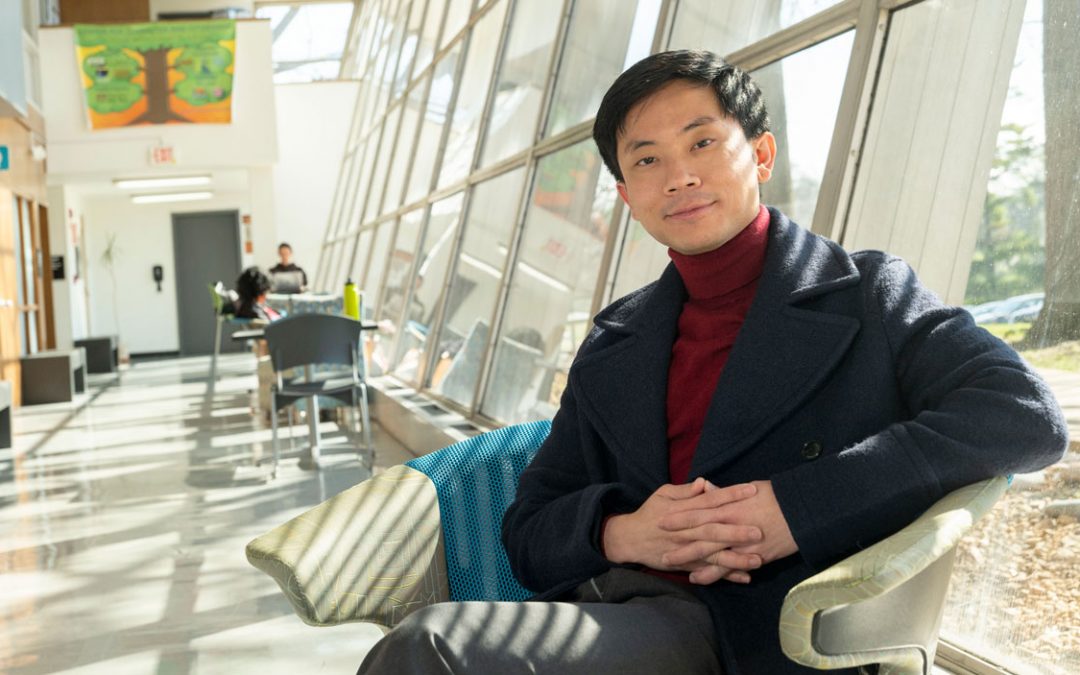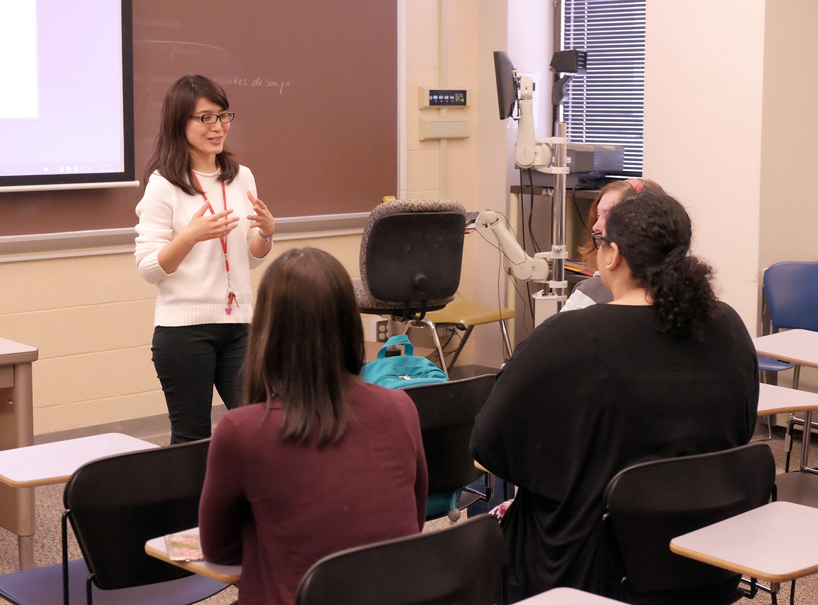
This spring semester Assistant Teaching Professor of Japanese Keiko Ueda introduced her Readings in Japanese students to Rakugo, a 400-year-old style of comedic theater performance. (Photos by August Jennewein)
For her Readings in Japanese midterm, Pierre Laclede Honors College junior Samantha Jarnagin, who is majoring in modern languages at the University of Missouri–St. Louis, had to perform a one-act play in a 400-year-old traditional style in front of the classroom while speaking fluent Japanese, pantomiming actions, switching between various characters and balancing herself in a kneeling position atop a desk.
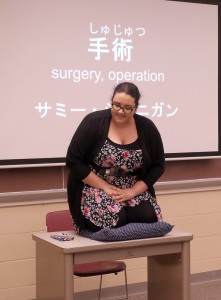
Pierre Laclede Honors College junior Samantha Jarnagin performs her skit where she plays both a patient and doctor who are new to surgery. The towel and fan to her right are traditional Rakugo props that, through the use of skilled acting and pantomime, may be transformed into items such as chopsticks or a book.
Easy, right?
“I don’t like speaking in public, especially when I’m performing, so it can be difficult to enunciate words correctly, but I was most afraid of falling off the desk!” said Jarnagin.
Challenges aside, Jarnagin’s performance was met with applause from her classmates and approval by Assistant Teaching Professor of Japanese Keiko Ueda.
Ueda tasked Jarnagin and the rest of her class with studying Rakugo, a one-person storytelling format, and executing Kobanashi, a form of short, comedic Rakugo that relies on a set-up and punch line.
Ueda believes that immersion in an art form allows students better engagement with complex subject matter.
“To understand the Rakugo, students need to understand not only the language and the literal meaning of words, but also background culture as well because humor reflects a society’s history, hopes and concerns,” said Ueda. “If a student doesn’t have this knowledge, he or she would not be able to understand or enjoy the story.”
Even though they come from a different culture, Jarnagin found the stories and humor used in Rakugo to be relatable to American tastes and structures.
“From what comedy I have seen, I think that Japanese and American humor are very similar,” she said. “There are sitcoms, hidden camera shows and skits that put people into strange situations. If someone was unfamiliar with Japanese culture and wanted to watch Japanese comedy, I think that they would be laughing along with the audience in no time.”
She noted that Rakugo punch lines rely on surprise and irony, as is evident in the skit she performed.
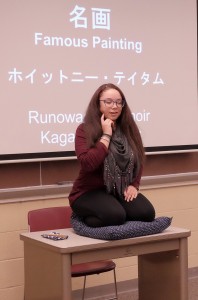
Modern languages senior Whitney Tatum’s performance recounts a misunderstanding between a museum worker and a museum patron who confuses her reflection in the mirror with the surrealist works of Pablo Piccaso.
“My skit was about a patient and a doctor talking before surgery,” she said. “The patient asks, ‘This is my first surgery; will everything be okay?’ And the doctor responds, ‘Oh, don’t worry about it. It’s my first surgery, too.’”
Senior modern languages major Whitney Tatum, whose kobanashi told the story of a museum patron who mistakes her reflection for a surreal Picasso painting, agrees that Rakugo and Japanese humor is easy to pick up and appreciate.
“Even if you don’t understand everything a Rakugo actor is saying, just watching them perform their routine with exaggerated gestures and faces is comedy by itself,” Tatum said.
With a few good belly laughs and careful appreciation of well-placed plot twists, Ueda found herself impressed with her student’s work.
“Performing Kobanashi is not an easy task,” she said. “It requires a lot of practice. When the students started practicing, they were not confident and worried about if they could do it. Some even felt scared. But eventually they showed more confidence and improved tremendously. They did well on the stage.”
At 3 p.m. April 17, the Touhill Performing Arts Center will present Bento Rakugo, a professional troupe that performs Rakugo in English. The show is sponsored by International Studies and Programs, and UMSL students can receive two complimentary tickets by showing a student I.D. All other tickets are $20. Attendees are encouraged to arrive 50 minutes early for a pre-show discussion.









